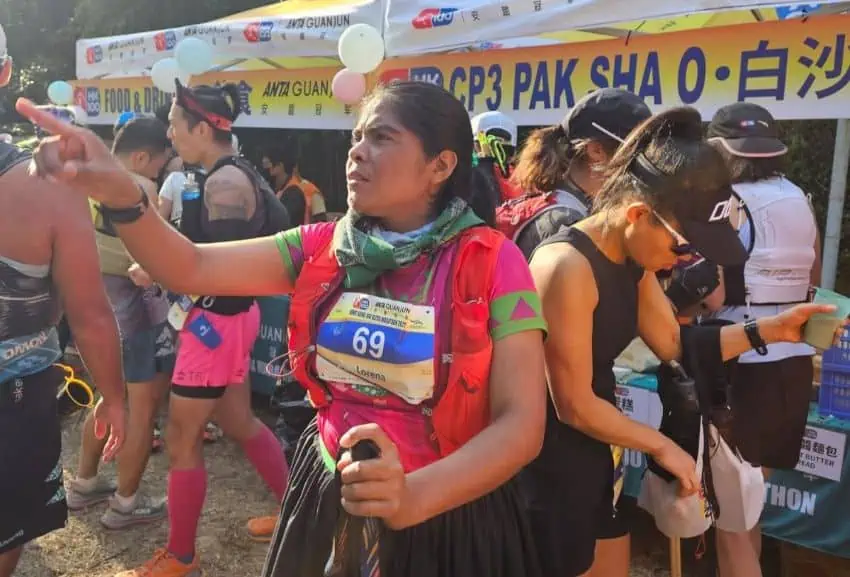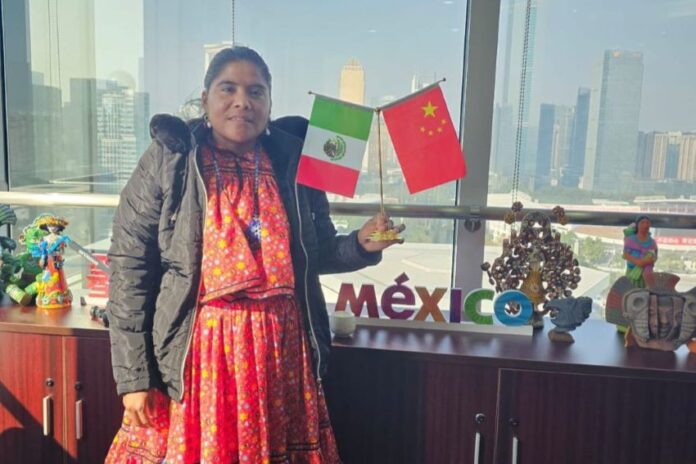Rarámuri runner María Lorena Ramírez Nahueachi completed a 100-kilometer race Sunday in the 2025 edition of the Hong Kong Ultramarathon, wearing an Indigenous dress and traditional sandals known as guaraches.
The Rarámurí, or Tarahumara, are an Indigenous community living in the Sierra Tarahumara, the northern mountains of Chihuahua state. Their name for themselves, Rarámuri, means “runners on foot.” Tarahumara is a name that was applied to them by outsiders.

Two thousand women athletes participated in the ultramarathon, which covered different areas and terrains across Hong Kong. Ramírez finished 328th, with a final time of 26:02:12. The ultramarathon started in Pak Tam Chung and ended near Tao Mi Chan Peak, after a winding route with views of the region’s landscapes and challenging climbs.
Reportedly, Lorena Ramírez suffered lesions on her feet due to the guaraches she wore. She was attended by a medical team a few hours into the race, allowing her to finish the 100-kilometer distance.
Days before, also in Hong Kong, Ramirez’s brother, José Mario Ramírez, completed a 56-kilometer ultramarathon in 8 hours and 48 minutes, finishing up in 142nd place. Meanwhile, Mirna de la Cruz, from the southern Mexican state of Tabasco, completed a 33-kilometer route in 7 hours and 42 minutes.
“Greetings to all of Mexico. Thank you very much for the encouragement,” Lorena Ramírez said in a broadcast from Hong Kong shared by the Lorena Ramírez A.C. Foundation, an organization that provides food assistance, promotes educational programs and preserves the Rarámuri culture.
The Rarámuri runners stand out for regularly participating in international long-distance races. Their remarkable endurance is shaped by the challenging conditions of the regions in which they live. After studying their cardiovascular functions 50 years ago, cardiologist Dale Groom called them “modern Spartans.”
In 2019, Netflix released a documentary following Ramírez and her lifestyle in the Sierra Tarahumara, called “Lorena, Light-Footed Woman.”
With reports from El Universal and Fábrica de Periodismo
